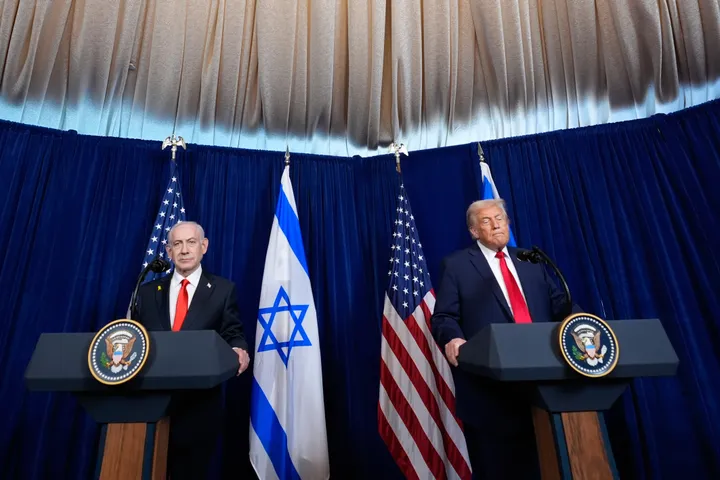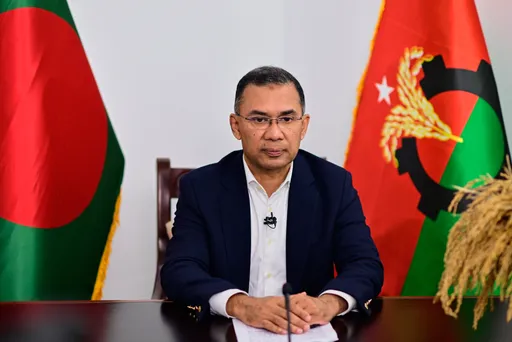With blockchain on its way to becoming a central element in the next digital transformation of the global economy, one region yet to fully tap into the technology’s potential is Africa.
But that has begun to change in the last two years, with blockchain bursting onto the African Fintech (financial technology) scene, as adoption across the continent has accelerated.
“Africa is rapidly building a reputation as the hotspot of the crypto-tech world,” Gideon Greaves, Managing Director at Crypto Valley Venture Capital (CV VC) Africa, told TRT World.
“The current blockchain startup scene is booming!”
The distributed ledger technology of the blockchain creates new possibilities for transparent, decentralised and fraud-proof solutions. Cryptocurrencies, which are built on the blockchain, have drawn the most attention – but aren’t the only avenue for the innovation the blockchain offers.
Today, Africa is the third fastest-growing cryptocurrency market globally, steadily attracting large investments. Between July 2020 and June 2021, crypto adoption in Africa surged by over 1,200 percent.
Adoption rates are high in countries like Kenya, South Africa, Tanzania and Nigeria, where the lack of financial services infrastructure has boosted crypto ownership, alongside being a preferred alternative for storing and transferring assets. In April, the Central African Republic made Bitcoin legal tender, the second country to do so after El Salvador.
In a report published last week by CV VC, titled “The African Blockchain Report 2021,” blockchain startups on the continent have raised $91 million in the first quarter of 2022, a staggering 1,668 percent increase in cash flow compared with Q1 2021’s growth of 149 percent.
A total of $127 million was raised throughout 2021, representing a 0.5 percent share of total global blockchain funding. 96 percent of those venture dollars went to Nigeria, Kenya, South Africa and Seychelles. Of the money raised, Fintech businesses accounted for $67 million (53 percent) of all blockchain funding, and exchanges raked in $34 million (26 percent).
So far, the ecosystem has gotten off to a great start during Q1 2022. Pan-African crypto exchange MARA raised $23 million last month; Jambo, a Congolese software development firm, bagged $30 million; Afriex, a Nigerian e-wallet company offering remittance services, got $10 million.
South African exchange VALR has came closest to a blockchain “mega-deal," closing a $50 million Series B round in March, the continent’s largest funding round to date.
While no crypto or blockchain unicorns have appeared on the continent thus far, they are expected to emerge in the next two to three years. Meanwhile, several tech unicorns have introduced blockchain into their businesses, including Nigerian digital payments firm Interswitch and Senegalese Fintech company Wave.
“More African companies are joining the global unicorn club, and we anticipate that many of those new unicorns will be blockchain unicorns,” says Greaves, who believes the region will lead the world in capitalising on blockchain businesses before the end of this decade.
Another venture, Adanian Labs, is a pan-African incubator launched in 2020 with a mission to nurture startups and entrepreneurs working to solve the region’s most pertinent challenges. It aims to build 300 impact-driven tech companies in Africa by 2025, harnessing blockchain and artificial intelligence (AI) to create one million jobs for African youth.
“In terms of financial infrastructure, personal identification, record keeping and lack of access to individual financial independence, Africa’s current state of affairs has created the ideal conditions to accelerate the adoption of blockchain technology,” Greaves explains.
“This is what makes the African tech scene so fertile,” he notes. “It solves real-world challenges faced by its people daily.”
Innovation is a necessity
The proliferation of mobile technologies across the continent has dovetailed with the widespread adoption of digital payment systems and increasingly, cryptocurrencies, which grant people in cash-based and informal economies access to alternative economic infrastructures.
With 370 million Africans classed as unbanked, one of the prime areas in which blockchain can make an immediate difference is in financial inclusion. P2P bitcoin marketplaces like Paxful and Localbitcoins are at the forefront, allowing millions to access a range of essential financial services.
“Financial inclusion is a key component to the economic success of a country, but in emerging markets like Africa, many individuals lack access to the most basic financial services,” Renata Rodrigues, Global Community & Education Lead at Paxful, told TRT World.
“The rising rates of mobile tech adoption, combined with Africa’s growing tech-savvy population, make the continent a prime candidate for emerging technologies like Bitcoin. With instability in the global financial markets, high remittance fees and limited access to banking, more and more people are turning to alternative solutions like Bitcoin to solve their everyday financial problems.”
Rodrigues cited how the Kenyan mobile platform M-Pesa has successfully penetrated the African market by promoting financial inclusion in enabling digital payment services to millions. According to the Central Bank of Kenya (CBK), mobile money transactions in the country grew by 32 percent in 2021.
“With education on Bitcoin and its true use cases across the continent, we’ll begin to see an even greater shift away from traditional finance.”
Several successful crypto exchanges have emerged in recent years, like pan-African exchange Yellow Card, which is currently available in almost a dozen countries with plans to expand in the future.
Given the importance of agriculture across the continent, it is no surprise that farmers have looked to integrate blockchain solutions into the sector. One example is the pioneering BeefLedger SA, which deploys a blockchain-enabled provenance platform to verify and trace the authenticity of beef products to combat food safety and fraud concerns that plague the South African market.
Players in the mining industry have utilised blockchain’s ability to make the logistics process more transparent. In 2018, African diamond mining giant De Beers launched Tracr, the world’s first blockchain network dedicated to monitoring the origin and quality of diamonds across the value chain, which provides an immutable record of their provenance.
Greaves believes that African countries are well positioned to take advantage of blockchain for various reasons – primarily because there is a necessity to.
“Many Africans cannot rely on vast, centralised, regulated infrastructural systems. They are often riddled with inefficiencies and red tape in the cases where they exist. As a result, innovation is blessed with a clean slate on which to paint, and progressive advances seem to follow.”
This, in turn, has inadvertently created the ideal environment for blockchain tech and crypto to thrive, Greaves notes. “Where innovation happens, funding flows!”
From Switzerland to Africa
A Swiss investment firm focused on the blockchain space, CV VC is planning to launch a fund to support 100 African blockchain startups over the next four years to the tune of up to $50 million.
The fund has already invested in a dozen startups, among them HouseAfrica, a Nigerian startup offering digital land registry services, and Ghanaian Fintech firm Mazzuma, a mobile platform that has integrated blockchain and AI to enable peer-to-peer (P2P) payments.
CV VC’s Africa division is presently working with stakeholders including governments, educational and research institutions, and corporate partners to realise blockchain’s value to address economic and social challenges.
Most notably, the Embassy of Switzerland in South Africa has been pivotal in fostering partnerships across many sectors to develop a vibrant startup ecosystem where business opportunities for blockchain solutions in African markets are prioritised.
Operating in Crypto Valley, one of the global hubs for blockchain innovation (with 14 unicorns), CV VC plans to enhance the emerging African ecosystem by sharing its experience of marrying entrepreneurial success within a regulatory landscape.
In doing so, the Swiss fund believes it will learn what Africa has to offer in return. “African resilience and determination to find better ways are exemplary,” Greaves explains. “The centralised over-regulated infrastructure in the developed world cannot provide the solutions needed for this new, rapidly evolving landscape.”
“Markets are evolving rapidly, and nowhere more so than in Africa,” says Greaves, adding that its “lack of legacy infrastructure offers an opportunity to leapfrog outdated systems and respond with more innovation, speed and agility.”
Greaves believes that kind of “out-of-the-box approach” is endemic to Africa and the reason it has become so sought after in the world of blockchain investment, and something other countries can apply to new frontiers, industries and markets as well.
Regulatory landscape
While there is incredible promise in adopting cutting-edge technologies like blockchain across various sectors, some hurdles remain.
A crucial one is connectivity: internet penetration in Africa sits at 43 percent, and broadband penetration is a dismal sub-1 percent. Infrastructural challenges are such that the World Bank estimates it would require $100 billion over a decade for Africa to achieve universal broadband connectivity.
Then there are regulatory challenges, which create barriers to access and restrict the number of people who can participate in the crypto economy and the potential uses for digital currencies in the region.
Out of 54 countries, 31 have either an absolute ban or implicit ban on crypto and 17 have an uncertain regulatory environment, leaving only six with a legal framework for crypto in place.
South Africa, home to one of the region’s most developed financial sectors, has been a regulatory pioneer for the African blockchain ecosystem. It has managed to establish legal certainty and transparency around cryptocurrencies while designing not one but two central bank digital currency (CBDC) proof-of-concepts.
Already a global financial hub, Mauritius was one of the first countries to adopt comprehensive legislation on virtual assets and initial token offerings (ITOs). Seychelles has taken a light-touch approach to regulate crypto and has housed some of the world’s largest exchanges and successful initial coin offerings (ICOs) to date.
Meanwhile, Kenya already tops the world rankings for P2P exchange volumes and is fifth globally in terms of crypto adoption. The Kenyan government does not currently prohibit cryptocurrencies, and while they are not regulated, the CBK exercises broad discretion when examining specific cases involving crypto.
In countries like Nigeria, the crypto market is thriving despite a ban (that has effectively done little to discourage citizens and institutions from using and trading crypto), where volatility of the Naira, coupled with high international remittance flows, have made digital currencies a sought-after alternative. Nigeria also became the first African country to launch its own CBDC, the eNaira, last October.
Despite regulatory uncertainty, companies have continued to establish themselves and offer blockchain solutions to customers. CV VC identified 41 firms that received funding between January 2021 and March 2022 that have integrated blockchain into various industries.
“Frontrunner countries like South Africa and Mauritius have demonstrated how a progressive stance toward cryptocurrency can be beneficial. This is the type of regulatory approach that inspires others to follow suit,” Greaves stated.
“As a regulatory consensus is achieved, the possibilities are even more exciting.”























